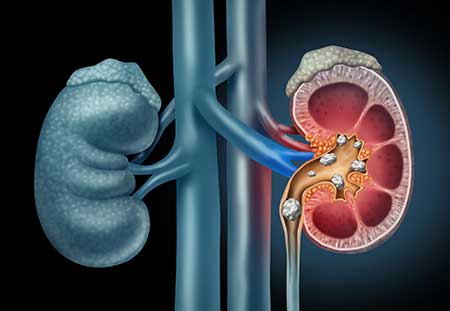 Even in the hands of the most skilled surgeon, removing kidney stones can leave small fragments behind. Until recently, this meant a second procedure, often more invasive than the first.
Even in the hands of the most skilled surgeon, removing kidney stones can leave small fragments behind. Until recently, this meant a second procedure, often more invasive than the first.
But researchers at the Kidney Stone Center at UW Medical Center – Northwest are conducting clinical trials where ultrasound waves dislodge and move the small fragments so they can be expelled naturally. The team hopes to finalize trial results and submit them to the U.S. Food and Drug Administration for approval next year.
The new procedure doesn’t require anesthesia. Just one or two visits of about 30 minutes should do the trick to get the fragments to clear on their own.
“All the surgeries that we do to treat stones have the potential to leave fragments behind,” says Dr. Mathew Sorensen, a UW Medicine urologist. “Some of those fragments, especially if they’re small, usually clear pretty quickly. But the ones that stay and hang out, especially if they stay in the bottom of the kidney, they have the potential to grow and … lead to another event such as surgery or an unpleasant [emergency room] visit down the road.”
The team is also exploring ultrasound to break larger stones into smaller pieces and then use a handheld device to expel the fragments. In the future, such a process will allow doctors to remove stones without using anesthesia, reducing the unpleasant side effects of a more invasive procedure.
This advance in treatment is of particular interest to NASA. In the weightlessness of space, kidney stones can become a significant problem because there’s no surgical option in flight. More than 30 astronauts have reported kidney stones within two years of space flight, so a longer mission to Mars could create a medical situation far away from Earth-based care.
Dr. Sorenson has had three stones himself, including one that required a procedure. As anyone whose had kidney stones knows, they can be extremely painful and debilitating, even when they eventually find their way out on their own. Anything that can speed their transition while reducing pain is a welcomed advance in treating kidney stones. Kidney stones become symptomatic if they become stuck in the urinary tract, causing debilitating pain. In addition, obstruction of urine flow causes a backup, which can result in kidney swelling and cramping, and set the stage for infection or lasting damage.